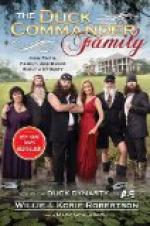But though Wolsey had made all due inquiries as to the scholarship and purity of life and conduct of those graduates selected for the honour done them, he had shown himself somewhat careless perhaps in the matter of their orthodoxy, or else he had taken it too much for granted. For so it was that of the eight Cambridge men thus removed to Oxford, six were distinctly “tainted” by the new opinions so fast gaining ground in the country, and though still deeply attached to the Holy Catholic Church, were beginning to revolt against many of the abuses of the Papacy which had grown up within that church, and were doing much to weaken her authority and bring her into disrepute with thinking laymen—if not, indeed, with her own more independent-minded priests.
John Clarke was a leading spirit amongst his fellows at Cardinal College, as he had been at Cambridge amongst the graduates there. It was not that he sought popularity, or made efforts to sway the minds of those about him, but there was something in the personality of the man which seemed magnetic in its properties; and as a Regent Master in Arts, his lectures had attracted large numbers of students, and whenever he had disputed in the schools, even as quite a young man, there had always been an eager crowd to listen to him.
Last summer an unwonted outbreak of sickness in Oxford had driven many students away from the city to adjacent localities, where they had pursued their studies as best they might; and at Poghley, where some scholars had been staying, John Clarke had both preached and held lectures which attracted much attention, and aroused considerable excitement and speculation.
Dr. Langton had taken his two daughters to Poghley to be out of the area of infection, and there the family had bettered their previous slight acquaintance with Clarke and some of his friends. They had Anthony Dalaber and Hugh Fitzjames in the same house where they were lodging; and Clarke would come and go at will, therein growing in intimacy with the learned physician, who delighted in the deep scholarship and the original habit of thought which distinguished the young man.
“If he live,” he once said to his daughters, after a long evening, in which the two had sat discoursing of men and books and the topics of the day—“if he live, John Clarke will make a mark in the university, if not in the world. I have seldom met a finer intellect, seldom a man of such singleness of mind and purity of spirit. Small wonder that students flock to his lectures and desire to be taught of him. Heaven protect him from the perils which too often threaten those who think too much for themselves, and who overleap the barriers by which some would fence our souls about. There are dangers as well as prizes for those about whom the world speaks aloud.”




